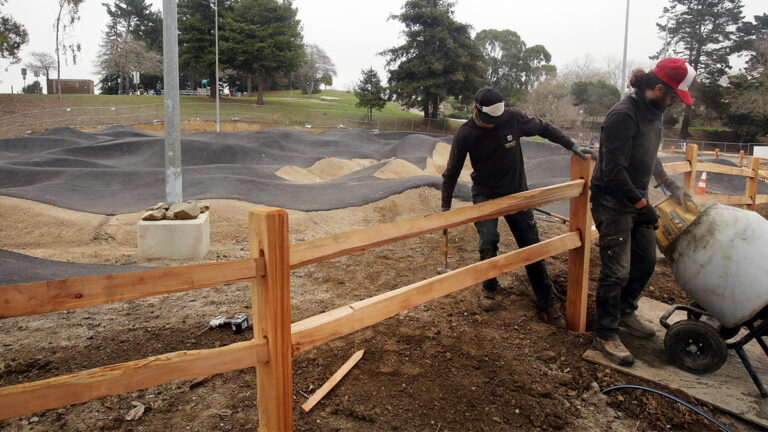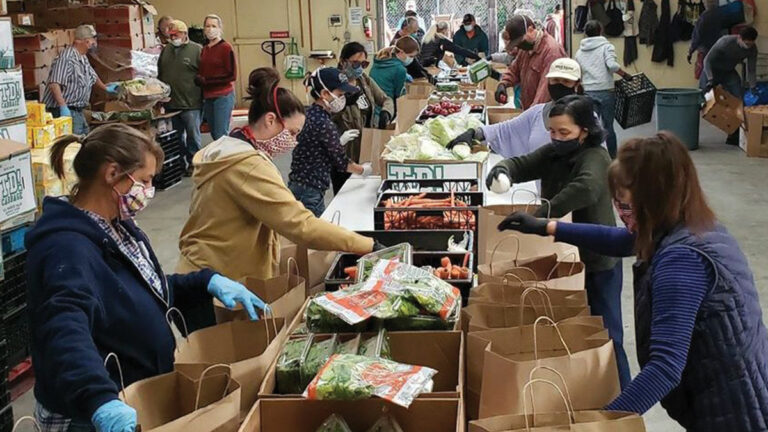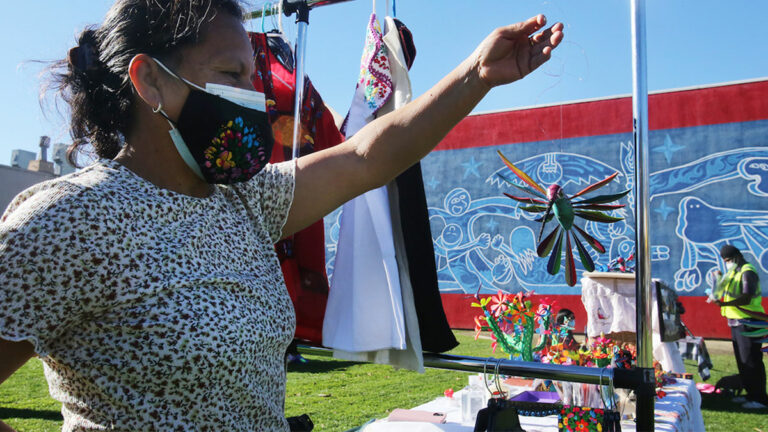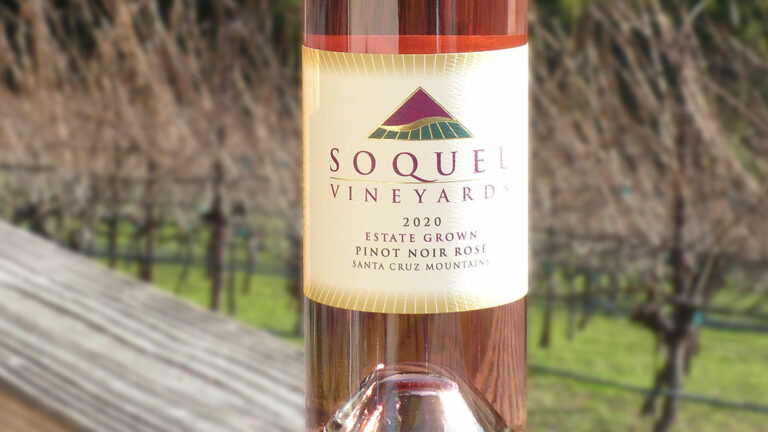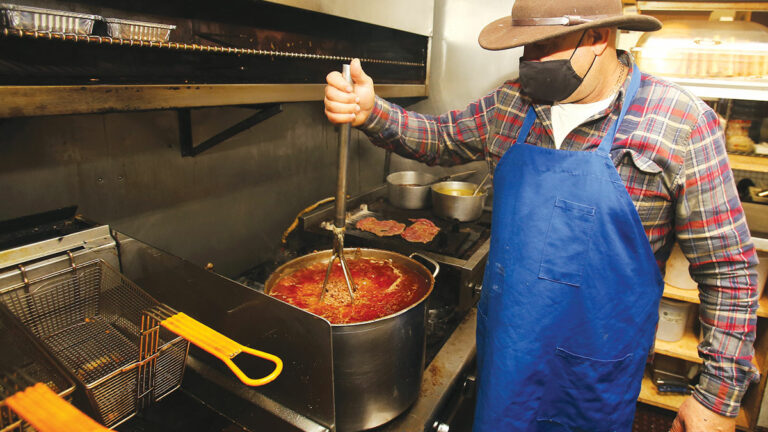A weekly guide to what’s happening.
ARTS AND MUSIC
GRATEFUL DEAD TUNES WITH MATT HARTLE AND FRIENDS New weekly link: Grateful Sundays live online can be found every Sunday at facebook.com/gratefulsundays. We need everyone to help us all stay safe. We are asking that everyone hang at their tables. Masks are required at all times unless you are seated at your table. Socially distanced dancing will be allowed at your tables only, not in the spaces between the tables. Artist sites and sounds. facebook.com/gratefulsundays. Purchase your tickets now: Call 831-479-9777, ext. 2. $15. Sunday, Feb. 14, 5:30pm. Michael’s on Main, 2591 S Main St., Soquel.
TED WELTY HUMP DAY HAPPY HOUR WITH BOB O’NEILL Native Santa Cruz musician Ted Welty, a guitarist and singer/songwriter, is best known as co-founder of 1990s alternative rock band Iguana Jive. The group was signed in 1994 by indie label Maddog Records, and went on to record their first album at A&M Studios. A second album was recorded and released in 1997. Ted is currently a member of the popular bands Locomotive Breath and Spun. No cover; bring your face mask. 831-479-9777, ext. 2. Wednesday, Feb. 10, 5pm.
DINNER AND A SHOW: A SINATRA VALENTINES FEATURING JOHN MICHAEL Join John and his ensemble for a romantic evening of Sinatra’s greatest love songs. Dinner starts at 6:30 and showtime is at 8pm. When John Michael sings Sinatra you would think Frank is in the room. John, from Dún Laoghaire Ireland, is an eclectic and proficient vocalist. He began vocalizing at the age of four and has been performing ever since. He is extremely versatile in many genres including jazz, swing, rock, Celtic, heavy metal, blues, funk, soul and opera. More than just a vocalist, John is adept at creating an atmosphere with his audience. He has opened up for national touring acts like Chris Isaak, Third Eye Blind, The Fix, Berlin, Huey Lewis, Greg Khin, The Pointer Sisters and more. $45 for dinner and show. 831-479-9777, ext. 2. Saturday, Feb. 13, 6:30pm.
ART SHOW Emerging from sheltering in place, Ben, a lifelong artist, photographer, actor and writer, was always looking for the next opportunity to translate everyday experiences into artistic expressions. At the start of shelter-in-place in mid-March, Ben began painting as a hobby but his painting has since evolved into one of his favorite artistic forms of expression. Meet and greets will be held Saturdays and Sundays 8:30am-10:30am with face masks and proper distancing. Ben’s paintings and fine art prints can also be viewed and purchased in the comfort of your home through artevolutionstudio.com. Wednesday, Feb. 10-Tuesday, Feb. 16, 7am-11:30pm.
BANFF CENTRE MOUNTAIN FILM FESTIVAL VIRTUAL FESTIVAL New lineup of films announced! This year, bring the adventure home! Fluff up your couch cushions, grab a snack of choice, and make sure you have a good internet connection, because the Banff Centre Mountain Film Festival World Tour is virtual! Travel to the most remote corners of the world, dive into daring expeditions, and celebrate some of the most remarkable outdoor achievements, all from the comfort of your living room. Visit riotheatre.com for more information about the online programs and how you can support your local screening. You may also go directly to the Banff affiliate link for the Rio at filmfest.banffcentre.ca/?campaign=WT-163945. $28.
CALL FOR COLLABORATION: MLK DAY JUSTICE JOURNAL Share your dreams and submit a page into a community journal in celebration of Dr. Martin Luther King Jr. Day. You can write and draw your responses by hand or digitally. Written responses can be of any language. Submitted pages must fit within 10 inches by 10 inches. Per submission, please include a note with your name, address, email or phone number, and selected prompt available on the event page. At the end of February, all the submissions will be compiled and pieced together. The completed journal will be displayed the week of March 1 as a close to Black History Month and continuation of a Black future. Submissions accepted through Feb. 19. Guidelines can be accessed on the event page: santacruzmah.org/events/justice-journal.
SALSA SUELTA FREE ZOOM SESSION SALSA SUELTA FREE ZOOM SESSION Keep in shape! Weekly online session in Cuban-style Salsa Suelta for experienced beginners and up. May include Mambo, ChaChaCha, Afro-Cuban Rumba, Orisha, Son Montuno. No partner required, ages 14+. Contact to get the link. salsagente.com. Thursday, Feb. 11, 7pm.
TWDCC’S WINTERDANCE FEST 2021 Throughout the month of February, Tannery World Dance and Cultural Center (TWDCC) will return with their fifth annual Winter Dance Fest (WDF), featuring four premieres from a lineup of world-renowned and emerging choreographers, airing for free every Saturday via the TWDCC website. Winter Dance Fest 2021 will feature returning artists Gregory Dawson (dawsondancesf), Taliha Abdiel (Abdiel Dance Project), and debut Winter Dance Fest features Norwood Pennewell (Garth Fagan Dance), and Angela Chambers (TWDCC). Winter Dance Fest 2021 honors Black History Month by centering and highlighting a full lineup of Black choreographers. Gregory Dawson’s fifth consecutive appearance at WDF offers an excerpt from his new work, “The Human Project,” exploring themes of change, sacrifice, community, and death. Taliha Abdiel, in her third WDF feature, will premiere “This is Why I Can’t Go Home,” a self-choreographed solo exploring the complex freedoms of longing, escapism and finding a destination. Norwood Pennewell, renowned principal dancer with Garth Fagan Dance, choreographed a solo for TWDCC’s own Artistic Director and Fagan principal alum, Micha Scott, titled “…And Still She Moves,” to find the balance between opposing elements. And TWDCC’s well-beloved teacher and administrator, Angela Chambers, will make her WDF debut with Ode, a dancerly dedication to her students, who have shared their moments of uncertainty, heaviness, and resilience. Angela has incorporated youth dancers into Ode, uniting her dedication with some of the dancers who inspired it, for the first time TWDCC youth have performed for WDF. These four artists are an inspired cast for Winter Dance Fest 2021. To read more about the WDF features, please visit tanneryworlddance.com/winterdance-fest. Artist videos will premiere on each Saturday of February, along with interviews of each artist on the podcast Speak For Change, hosted by Thomas Sage Pederson. Saturday, Feb. 13, 4pm.
VIRTUAL FAMILY DAY: FOLDABLE BUTTERFLY VALENTINE’S DAY CARDS Grab your art supplies and creative kiddos to get ready for Valentine’s Day with the Santa Cruz Museum of Art and History (MAH). Hop on Zoom as MAH History Learning and Engagement Manager, Jamie Keil, takes you through a hands-on art activity. For this love-edition of Virtual Family Day, we will be making Valentine butterflies. Design and create your own beautiful butterfly and perfectly folded cocoon envelope to give to someone special in your life. Plus, we’ll be joined by special guests, “In These Uncertain Times” exhibiting artists Dana Peters and Sarah Bianco, as they share more about their art practice. This event is good for all ages but may hold the attention of 5-12-year-olds best. We recommend bringing at least two pieces of paper, coloring utensils, and scissors. $5 per household/free for MAH members. After registration, a Zoom link will be sent to access the event. More info at santacruzmah.org. Thursday, Feb. 11, 3-4pm.
WEST CLIFF OUTDOOR VALENTINE’S MARKET Enjoy a socially distanced outdoor market with unique artisans and food trucks while taking in the spectacular view of the ocean. This one-of-a-kind market will be held in two parking lots along West Cliff Drive. This is always a popular spot for locals and tourists, as it overlooks the famous Steamer Lane surf spot. The market will feature one-of-a-kind gifts and a chance to see many unique artisans while enjoying an amazing view overlooking the ocean. The market will follow all social distancing guidelines and all vendors and attendees will be wearing face masks. Please come and join us and enjoy this outdoor shopping experience! Saturday, Feb. 13, 10am-5pm.
COMMUNITY
CHINESE NEW YEAR DISCUSSION: YEAR OF THE OX DISCUSSION WITH DOCTOR LETA Join Chinese Doctor LeTa for a Year of the Ox Discussion and discover what’s in store for you! This in-depth presentation will take a look at the new energies that affect us. Let’s take a look at what the Year of the Ox means for us on a global and local scale, the astrology for the year plus the Feng shui energies affecting your home, workspace and more. You will learn about four different animals that affect you: your year (most of you know this one), your month, your day and your hour animals. So when you listen, you will be listening to four animals for yourself and this new year, not just one. Handouts will be given to all attendees by email. We are starting a new decade. Be prepared by knowing where to put your Qi (attention) and how to side-step the energies that may not be worthy of your time. All ages welcome. Please have paper, writing implements, tea on hand! Teach yourself how to surf life’s synchronicities and become a master of your own destiny. Visit eventbrite.com/e/year-of-the-ox-chinese-new-year-talk-online-tickets-129584188797 for more information. Saturday, Feb. 13, Noon-1:30pm.
COCKTAILS & CUPCAKES Join Save Our Shores as we mix up karma for our life-giving sanctuary with a fun virtually-connected evening of cocktail and mocktail making led by a local mixologist, cupcakes from your favorite local bakery, music curated by DJ Mai Girl, a collaborative ocean love songwriting experience led by The Brothers Koren, Ocean Love Trivia, inspirational videos exemplifying our organization’s vital work, and more! Your ticket contributions will support our ongoing education, action, and advocacy work to help us save all that we can in our ocean ecosystems while protecting our shared future during these challenging times. Since you will be providing your own refreshments for the evening, your entire ticket contribution is tax-deductible! Buy tickets here: saveourshores.salsalabs.org/cocktailscupcakes/index.html. Thursday, Feb. 11, 6pm.
FOR THE LOVE OF CHILDREN VIRTUAL EVENT A free virtual one-hour event to learn more about CASA of Santa Cruz County and the Children’s Fund. Hear from our advocates, former foster youth, and a family member about how CASA and the Children’s Fund helped make a difference in the community. The CASA Children’s Fund is used by our volunteer advocates to purchase special items to enrich or just add normalcy to a CASA child’s life. This year, we have supplied dozens of tablets and laptops for online schooling. We have purchased bikes, bike helmets, camping supplies, rollerblades, and scooters so kids can get out and exercise safely. We also helped with essential items that many of us take for granted such as eyeglasses, braces, bedding, strollers, car seats, and tutoring. Register here: zoom.us/meeting/register/tJ0ufu-orT4oGdXj0lO21_TGzZlimVH6Xl6a. Wednesday, Feb. 10, 4pm.
TENANTS’ RIGHTS HELP Tenant Sanctuary is open to renters living in the city of Santa Cruz with questions about their tenants’ rights. Volunteer counselors staff the telephones on Tuesdays, Thursdays and Sundays from 10am-2pm. Tenant Sanctuary works to empower tenants by educating them on their rights and providing the tools to pursue those rights. Tenant Sanctuary and their program attorney host free legal clinics for tenants in the city of Santa Cruz. Due to Covid-19 concerns, all services are currently by telephone, email or Zoom. For more information visit tenantsanctuary.org or follow us on Facebook at facebook.com/tenantsanctuary. 831-200-0740.Thursday, Feb. 11, 10am-2pm. Sunday, Feb. 14, 10am-2pm. Tuesday, Feb. 16, 10am-2pm.
GROUPS
ENTRE NOSOTRAS GRUPO DE APOYO Entre Nosotras support group for Spanish-speaking women with a cancer diagnosis. Meets twice monthly. Registration required, call 831-761-3973. Friday, Feb. 12, 6pm.
OVEREATERS ANONYMOUS All our OA meetings have switched to being online. Please call 831-429-7906 for meeting information. Do you have a problem with food? Drop into a free, friendly Overeaters Anonymous 12-step meeting. All are welcome!Sunday, Feb. 14, 9:05-10:15am.
WOMENCARE ARM-IN-ARM Cancer support group for women with advanced, recurrent, or metastatic cancer. Meets every Monday at 12:30pm via Zoom. All services are free. Registration required. Contact WomenCARE at 831-457-2273 or online at womencaresantacruz.org. Monday, Feb. 15, 12:30pm.
WOMENCARE TUESDAY SUPPORT GROUP WomenCARE Tuesday Cancer support group for women newly diagnosed and through their treatment. Meets every Tuesday currently on Zoom. Registration required. Contact WomenCARE at 831-457-2273 or online at womencaresantacruz.org. Tuesday, Feb. 16, 12:30-2pm.
WOMENCARE: LAUGHTER YOGA Laughter yoga for women with a cancer diagnosis. Meets every Wednesday at 3:30 via Zoom. Registration required by contacting 831-457-2273. Wednesday, Feb. 3, 3:30-4:30pm.Wednesday, Feb. 10, 3:30-4:30pm.
OUTDOOR
UNITARIAN UNIVERSALIST FELLOWSHIP PRESENTS DEFENDING DARKNESS: A BRIEF HISTORY OF LIGHT POLLUTION Gain a new appreciation for darkness on a planet dominated by a species enamored with light in this Zoom presentation by Andy Kreyche, local astronomy educator and member of the Santa Cruz Chapter of the International Dark Sky Association. The dark sky movement, originally started by astronomers, has become a worldwide effort to protect all species from the ill effects of excessive artificial light at night, also known as light pollution. After Andy’s presentation (and weather permitting), amateur astronomer Mike Jerry will be your guide for a real-time telescopic tour of astronomical sights from his home in Death Valley National Park, which has been designated as the largest Dark Sky National Park in the country by the International Dark Sky Association. Register at uufscc.org. Thursday, Feb. 11, 7pm.
CHANGING CLIMATE: THE ROLE OF ENVIRONMENTAL JUSTICE Please join us on Feb. 10 as we discuss meaningful climate policy and environmental justice reform. In this conversation, Rhiana Gunn-Wright,director of climate policy at the Roosevelt Institute and an architect of the Green New Deal, will speak to why climate policy must include environmental justice, why climate must be part of our post-Covid economic recovery and opportunities for the Biden administration to tackle climate change and environmental justice. Moderated by Sikina Jinnah, associate professor of environmental studies at UCSC. Welcome and opening remarks by Valentin Lopez, chairman of the Amah Mutsun Tribal Band. Register for this free event at transform.ucsc.edu/events. Wednesday, Feb. 10, 5:30pm.
COMMUNITY PERMACULTURE CALLS WINTER 2021 Practice permaculture each week at our village campfire of ongoing interactive group calls. Hosted by experienced permaculture mentors including Santa Cruz Permaculture founder David Shaw, Lydia Neilsen of Rehydrate the Earth, and John Valenzuela of Cornucopia Food Forests. The goal of this program is to create thriving and resilient individuals and communities. We do this through supporting people to connect with nature, community, and themselves more deeply, and use permaculture as the vehicle for doing so. Each call includes a keynote talk on a relevant and seasonal topic. This is followed by a small group conversation for reflection, and a whole group conversation and Q&A. We close the calls with invitations for how you can apply what you’ve learned in your home and community. The next call begins with a check-in about how it went applying what you learned. Our curriculum is ever-evolving, changing with the seasons, and influenced by the topics people want to cover. It is dialogical and co-creative. We include and also transcend the topics covered in our permaculture design course, listed here just to get the flavor of typical topics. For example, during a 10-week cohort, we may spend two weeks on composting (home or commercial), two weeks on no-till agroecology and food forests, a week on habitat and pollinators, a week on designing disaster resilience (personal and neighborhood), a week on economics and right livelihood, and a week on policies to support ecological living. Overall, our goal is to help you and your community thrive using a community-based approach to permaculture as the means. Winter cohort topics include winter pruning, grafting, observing water, greenhouses and composting. Learn more about and register for the 10-week call series at santacruzpermaculture.com/communitypermaculture. $25 per call, $250 for the series. Tuesday, Feb. 16, 7-8:30pm.
SCIENTISTS SAVING THE OCEANS VIRTUAL EXPEDITION Expedition 1: Protecting Dolphins and Whales from Oceanic Noise. Join the Seymour Marine Discovery Center for a unique virtual expedition as we go behind the scenes with UCSC’s Marine Mammal Physiology Project at Long Marine Lab to explore how Dr. Terrie Williams is racing to protect dolphins and whales from oceanic noise. Attendees will have the opportunity to interact with Long Marine Lab’s expert animal trainers and researchers to learn how they care for and train dolphins and seals to voluntarily participate in conservation science, observe team research in action and learn how new technologies are developed to investigate animals in the wild and understand how lab science underpins field research aimed at protecting narwhals and other marine mammal populations around the world. Facilitated live through Zoom, this expedition consists of six engaging 90-minute classes. Each class session includes livestreaming time with the staff and resident animals cared for by the Marine Mammal Physiology Project at UCSC. Fees: Seymour Center members $250, non-members: $320, note that members receive priority registration. For more details and to register, visit: seymourcenter.ucsc.edu/learn/ongoing-education/scientists-saving-the-oceans. Wednesday, Feb. 10, 2:30-4pm. Monday, Feb. 15, 2:30-4pm.
VIRTUAL YOUNGER LAGOON RESERVE TOURS Younger Lagoon Reserve is now offering a virtual tour in both English and Spanish. This virtual tour follows the same stops as the Seymour Marine Discovery Center’s docent-led, in-person hiking tour, and is led by a UCSC student! Virtual Younger Lagoon Reserve tours are free and open to the public. Part of the University of California Natural Reserve System, Younger Lagoon Reserve contains diverse coastal habitats and is home to birds of prey, migrating sea birds, bobcats, and other wildlife. See what scientists are doing to track local mammals, restore native habitat, and learn about the workings of one of California’s rare coastal lagoons. Access the tours at seymourcenter.ucsc.edu/visit/behind-the-scenes-tours/#youngerlagoon. Sunday, Feb. 14, 10:30am.


